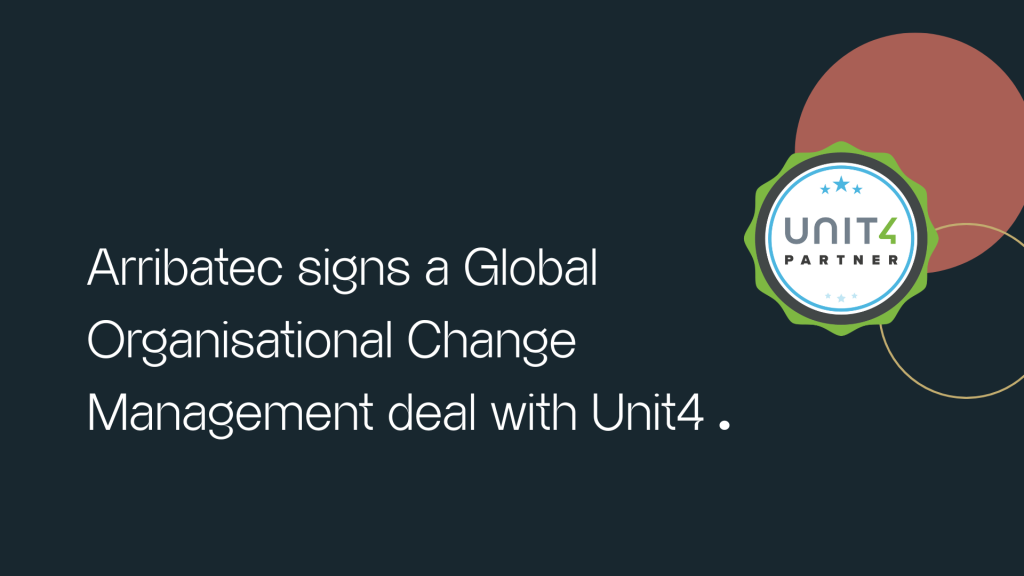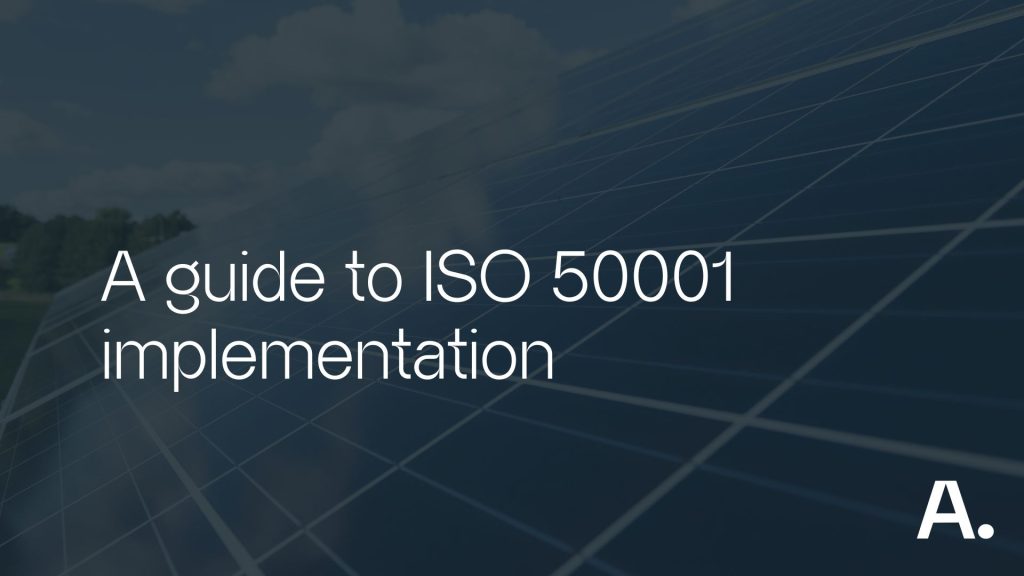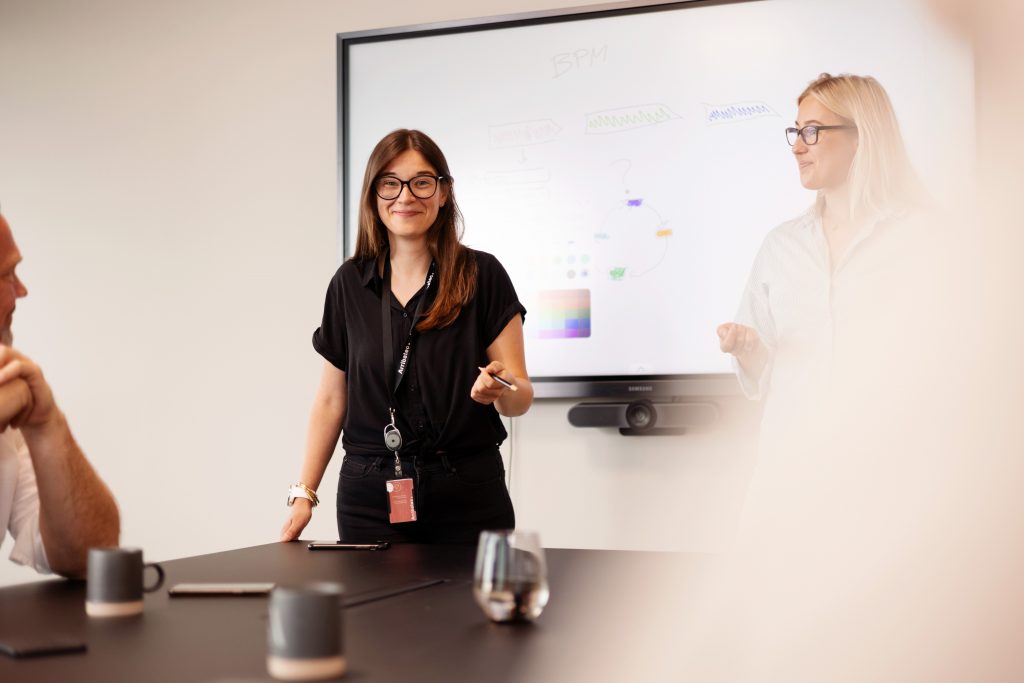
Welcome to the Fourth Era of ERP
From an on-site software to an increasingly cloud-based solution: the continuous innovation journey of ERP
Every business with experience in a legacy ERP system knows its dark side:
Slow, not very adaptable, and not at all scalable. The Enterprise Resource Planning solution of the 90s was as mammoth as the PCs in vogue in that decade. Born and promoted to be the only “source of truth” for businesses, the same size as the Delphi Oracle – not to mention the maintenance costs – ERP1.0 could not keep up with the tech revolution.
The advent of the World Wide Web required a service-oriented architecture that could be extended to harmonise different processes within a business.
At the same time, ERP became the core business strategy for many private and public organisations. Still as costly as before, but with more features!
The 2010s saw ERP solutions gradually evolve into an adaptive technology strategy to enable organisations to master abrupt business criticalities and enhance their workflow, powered by:
- Enterprise data access,
- Data analysis engine
The ERP evolution timeline
Today, ERP entered the 4th era, flaunting a radical shift to an integrated, easier-to-use, and on-demand solution to grow business value.
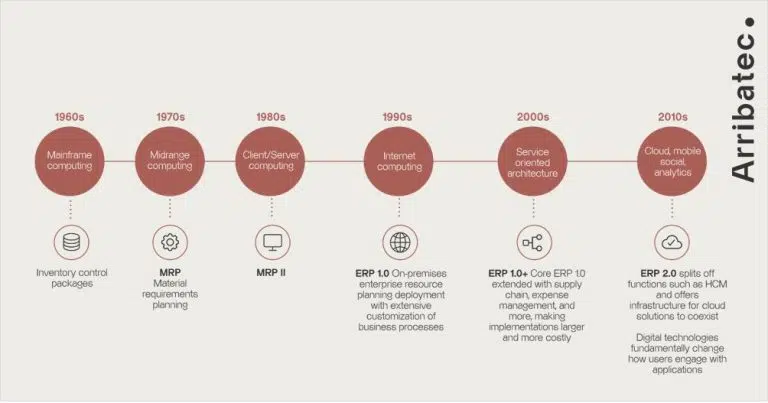
What is the shift between ERP 2.0 and the so-called Next-Gen ERP (also known as Fourth Era ERP)?
Googling “what makes a next-gen ERP solution,” you can quickly come across different kinds of lists; some of them are focused on modern platform parameters, and others are about application design.
Here is a short but effective summary of the five hallmarks that a new-generation ERP must show off:
Business Intelligence: it enables businesses to manage and integrate diverse applications while using predictive analytics to help users in complex decision-making processes. In the fourth era of ERP, the shift towards data would fuel AI capabilities as the essential hallmark.
Enhanced Workflows: intelligent workflows and process automation that reduce or eliminate manual touchpoints and keep tasks on target.
Flexibility: The gradual transition of ERP solutions towards Agile implementation makes the system more flexible and easier to implement, supporting code-based configuration, simple API-driven integrations, cloud-based infrastructure, and industry-ready modules.
Data-Centric: Creating, managing, and understanding data is paramount in the latest software platforms. This shift from processes to generated data goes hand-in-hand with focusing on utilising this information for identifying potential risks and enhancing strategic planning to improve organisational outcomes.
Global / Scalable Functionality: supporting growth worldwide, including multiple companies, new features, and capabilities that would upgrade it to a broader ecosystem, in which data is instantly updated and accessible in the system with relatively fewer maintenance concerns.
Are you wondering if your business needs to switch to a more advanced ERP version?
Recognising “if” and “where” your current ERP doesn’t support your business goal is the first step toward answering the previous question. The path towards modernising your ERP starts with acknowledging inadequacies or gaps.
Regardless of the size of your business, there are three key points where the need to modernise calls for urgency:
- Operational efficiency
- Digital transformation
- Growth and confidence
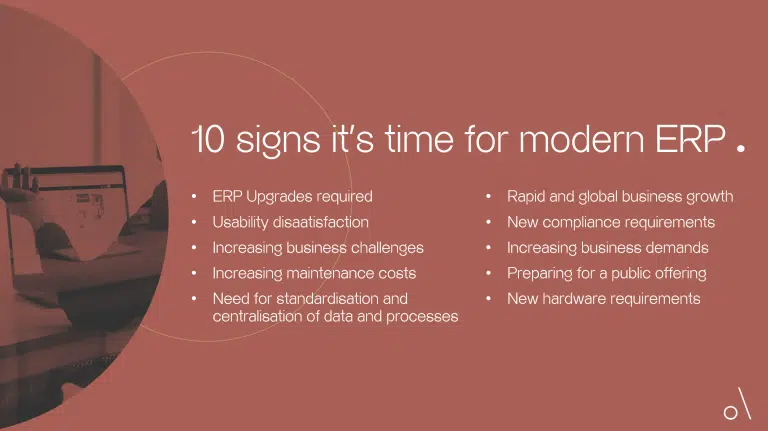
With the current pace of business evolution, organisations cannot afford to ignore the transformative analytics and decision-making techniques of a next-generation ERP.
Legacy ERP systems no longer meet many of the needs of modern enterprises: they’re not adaptive or intelligent enough, they require too many manual touchpoints and workarounds, support for streamlined remote accesses is non-existent, and they don’t provide the deep insight necessary for strategic decision-making either.
How can Arribatec help you?
We partner with leading vendors in the market, offering your organisation the best-of-breed software. At Arribatec, we focus on providing the best tools for our clients, so they can do more with less and focus o their company purpose.
One of these examples is Unit4 ERPx, the next-generation smart ERP solution, which supports your business with productivity, velocity in the right direction and resilience to adapt and evolve.

